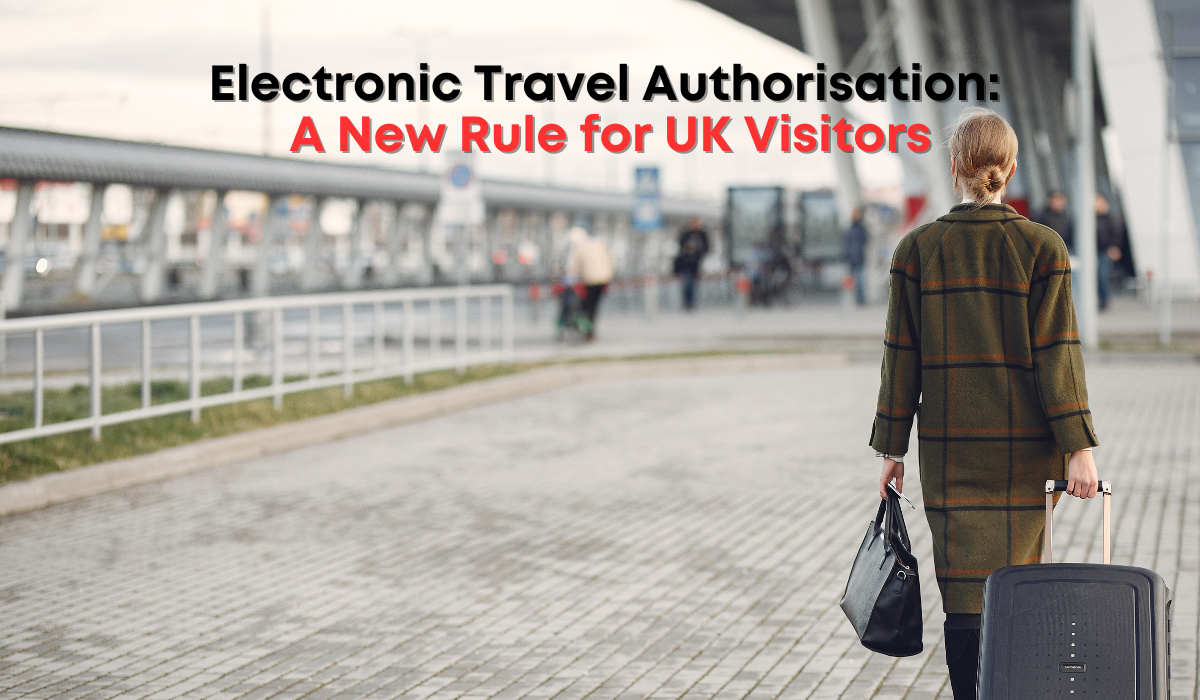The UK’s Electronic Travel Authorisation (ETA) scheme is a pivotal addition to the country’s immigration framework, first introduced in the March 2023 Statement of Changes to the Immigration Rules (HC 1160). Drawing parallels to the United States’ Electronic System for Travel Authorisation (ESTA), the ETA aims to bolster the UK’s border security by ensuring that non-visa nationals travelling to the country for short stays or transit are pre-authorised.
This article delves into the key aspects of the ETA scheme, its phased implementation, who it applies to, and how travellers can apply.
What Is the UK’s Electronic Travel Authorisation Scheme?
The ETA is a pre-travel authorisation system designed to enhance border security and ensure the UK has advance knowledge of individuals entering its territory. Visitors and transit passengers who do not need a visa for short stays or do not hold prior immigration status will be required to secure an ETA before their journey.
Failure to secure an ETA will result in refusal of boarding or entry into the UK. The system is intended to provide the UK government with a mechanism for security checks before the traveller’s arrival.
The scheme allows for multiple entries into the UK within the validity period of the ETA, which is either two years or until the expiry of the applicant’s passport.
Who Needs an ETA?
The ETA scheme is being implemented in phases, with the ultimate goal of applying to all non-visa nationals. Initially, the scheme opened for Qatari nationals in October 2023, followed by nationals from Bahrain, Jordan, Kuwait, Oman, Saudi Arabia, and the UAE in February 2024.
However, Jordanian nationals were later removed from the eligibility list and required to apply for a visa under Appendix Visitor: Visa National List. A similar adjustment occurred for Colombian nationals in November 2024.
From 8 January 2025, the scheme will apply to nationals of non-European countries listed under paragraph ETANL 1.1.(c) of Appendix ETA National List, with further expansion to European nationals from 2 April 2025.
It is crucial to note that an ETA is required for all travellers, including children and infants, regardless of their age.
Who Is Exempt from the ETA Scheme?
Certain groups are exempt from the requirement to obtain an ETA. These include:
- British citizens or British Overseas Territory Citizens travelling on a British Overseas Territory Citizen passport.
- Irish citizens, except where subject to deportation, exclusion, or international travel bans.
- Individuals who already hold permission to live, work, or study in the UK.
- Travellers with a valid UK visit visa or those exempt from immigration control.
- Residents of Ireland, ensuring the Common Travel Area rights remain intact, particularly benefiting border communities.
- Legal residents entering the UK from Guernsey, Jersey, or the Isle of Man.
These exemptions underline the scheme’s tailored application to maintain existing agreements and avoid unnecessary disruption.
How to Apply for an ETA
The ETA application process is designed to be straightforward and accessible. Applications can be submitted through the UK ETA app or online. Here’s how it works:
- Cost: The application fee is £10 per person.
- Processing Time: Decisions are typically made within three working days.
- Approval: Approved applicants will receive an email confirmation. The ETA is electronically linked to the applicant’s passport.
Travellers must ensure they use the same passport for their ETA application and travel.
What If My Application Is Refused?
If your application for an ETA is refused, you cannot travel to the UK using the scheme. However, you can still apply for a visa, such as:
- A Visitor Visa for short stays.
- A Transit Visa if passing through the UK.
- If applying under the Creative Worker visa concession, you must instead apply for a Temporary Work – Creative Worker visa.
The refusal process underscores the ETA’s role as a security measure rather than a blanket approval mechanism.
Why Does the UK Need an ETA?
The introduction of the ETA reflects the UK government’s commitment to national security and border management. In a February 2024 factsheet, the government highlighted the scheme’s role in ensuring that “everyone wishing to travel to the UK has permission to do so.”
The system is part of a broader global trend towards pre-travel authorisations. The European Union is set to introduce its own European Travel Information and Authorisation System (ETIAS) in 2025, following the implementation of the Entry/Exit System (EES). These measures aim to create a secure and uniform travel environment worldwide.
Reflections on the ETA Scheme
The ETA scheme is undoubtedly a landmark development in the UK’s immigration policy. While it provides a practical solution to enhancing border security, it also raises questions about accessibility, potential delays, and its impact on global mobility.
For travellers, the scheme necessitates advance planning and raises awareness about the importance of pre-travel compliance. However, exemptions for Irish citizens and residents of the Common Travel Area demonstrate a recognition of unique regional relationships.
As the scheme rolls out to European nationals in 2025, it will be interesting to observe its long-term implications, especially as other nations adopt similar frameworks.
Final Takes
The Electronic Travel Authorisation scheme is more than just an administrative formality—it reflects the evolving landscape of global travel security. With its phased implementation and broad applicability, the ETA is set to become a routine part of travel planning for millions of non-visa nationals.
By staying informed and prepared, travellers can navigate this system efficiently, ensuring their journeys to the UK are seamless. As the world embraces digital authorisation systems, the ETA serves as a reminder of the intersection between security and accessibility in modern immigration practices.
Get in touch: For a comprehensive understanding of your options or queries on UK immigration matters, contact GigaLegal Solicitors at 02074067654 or click here to book a no-obligation consultation with an immigration expert.


